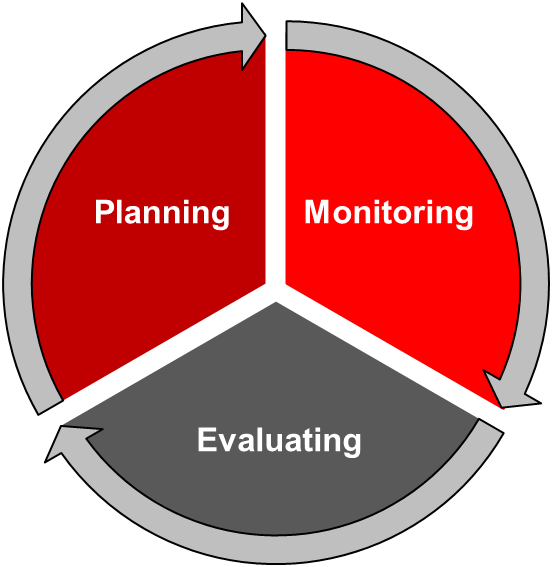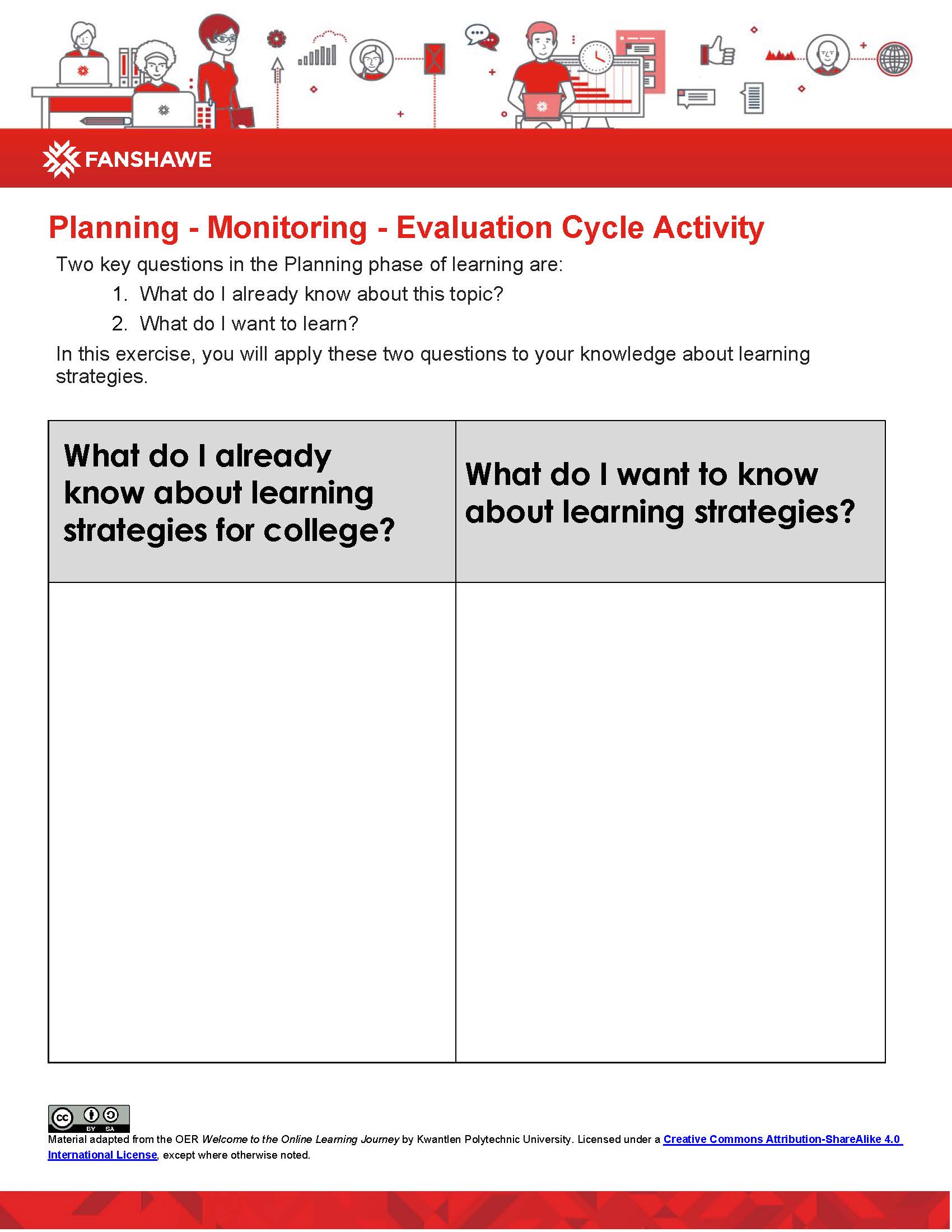1.2 Applying the Plan-monitor-evaluate Model for Assessing Your Learning Progress
What is Metacognition?
Have you ever wondered what the most successful students do differently from other students? Students who have developed effective ways of learning have mastered a skill called metacognition. In simple terms, metacognition is understanding your own thinking and learning processes. In other words, it is “thinking about your thinking”. Metacognitive skills include planning your learning, monitoring whether your current learning strategies are successful, and evaluating results of your learning. Improving your metacognitive skills is associated with increased success in all of your academic life. To learn more about how metacognition applies to student life, watch the video below.
Learning Choices: Videos and Text
At several points in the textbook, you will have the opportunity to learn key skills by watching a short video. If you prefer reading to watching videos, you will find a video transcript located directly below each video. Scroll past the video to read if this is your learning preference.
Download an Accessible PDF transcript of the above video.
How do you gain the skill of metacognition? One way to think about developing metacognition is gaining the ability to plan, monitor, and evaluate your learning.

Planning involves two key tasks: deciding what you need to learn, and then deciding how you are going to learn that material.
Monitoring requires you to ask “how am I doing at learning this?”. In monitoring, you are constantly tracking what you have learned, what you don’t yet know, and whether your study strategies are helping you to learn effectively.
Evaluation involves reflection on how well you met your Learning Objectives after completing a unit of study, or receiving feedback (such as a test or assignment).
Key Questions to Improve Your Learning
At each stage in the learning cycle, there are key questions that you will ask yourself to support your learning process. In the chart below, you will identify the key question for each stage in the cycle, along with the other questions you will want to consider. To use these questions in your courses, download a printable worksheet version.
| Key question | Other questions to ask yourself |
| What do I need to learn? (Planning) |
|
| How am I going to learn the material? (Planning) |
|
| How am I doing at learning this material? (Monitoring) |
|
| Did I learn the material effectively? (Evaluation) |
|
Reflect
One key metacognitive skill is being able assess what you already know about a course topic, and to identify what you would like to learn through your reading, discussions, assignments and other class activities.
Complete the exercise below, or download a printable version.

- Chick, N. (2017). Metacognition. Retrieved August 31, 2017, from https://wp0.vanderbilt.edu/cft/guides-sub-pages/metacognition/↵/ ↵
- Tanner, K. D. (2012). Promoting student metacognition. Cell Biology Education, 11(2), 113–120. https://doi.org/10.1187/cbe.12-03-0033↵ ↵

